You may not think of Leave It to Beaver as a financial program, but it kind of was. If CNBC were ever looking for programming to go along with shows like Mad Money or Squawk Box, Leave It to Beaver would almost fit right in.
Because in the midst of all the plotlines about arguments with friends, struggling at school and family dynamics, there were an awful lot of episodes that focused on money.
It was a sitcom with a heart of gold, but it was also about gold.
For instance, some of the financial-heavy plotlines include:
- Beaver’s friend Larry steals some money from his mom.
- Beaver and Larry lose some of their class’s money.
- Beaver uses money that he was going to buy a birthday gift for Wally, to instead buy himself a bow-and-arrow set.
- Beaver loses money that his father gave him for a haircut.
- Beaver wins a $3,500 sports car in a raffle -- and is told by his parents that the car needs to be sold and the money put in his bank account.
- Wally goes on a date, which involves Ward lending his son money, and then Wally leaves his wallet home.
- Eddie Haskell moves into his own apartment and discovers the joys of being alone and broke.
- Beaver gets a job as a caddy -- and faces a thorny ethical problem when he spots a golfer cheating to win a $500 bet.
You get the idea.
As the saying goes, money makes the world go round, which may explain why finances come up so often in Leave it to Beaver. The series was, after all, a series of lessons about life.
And within those life lessons were often a lot of discussions about money. So what can financial lessons can we learn from the Ward Cleaver (the dad), June Cleaver (the mom) and their two sons, Wally and Beaver? More than you might think. I’m not suggesting that any of these lessons -- which I've pulled from some of the first season's episodes -- are groundbreaking pieces of insight that will make your jaw drop.
They aren't. But Leave It to Beaver had a profound way of reminding us that if we can get the financial basics down, we'll have a much better life overall.
Today's "TV Lesson" Breakdown:
- If you want to buy something you can’t afford, get a job
- Work is, well, a lot of work.
- Saving money is a great habit to get into
- Just because you have money, it doesn’t mean you should spend it
- It’s better to give than receive
- You can raise money quickly, if you're in a jam.
- Ask questions before going into debt
- Know what a job is worth to you
- When you teach your kids about money, have some faith that the lessons are sticking
- Every school should have a "bank day"
- If you’re fired, you can quickly become hired
- This was the essential financial and life lesson of Leave It to Beaver
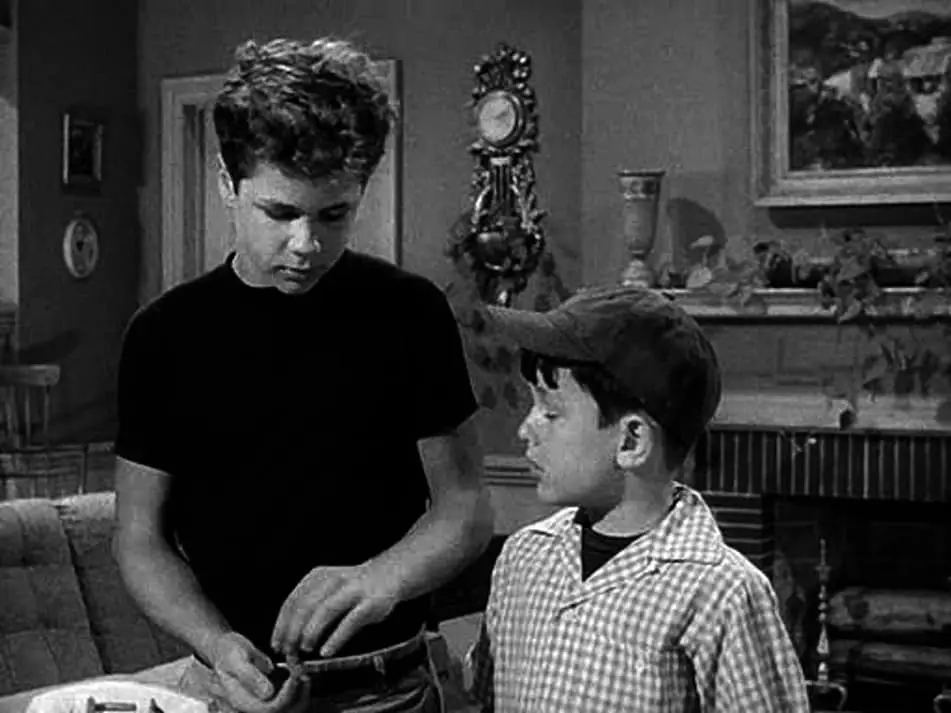
If you want to buy something you can’t afford, get a job
That’s a message that comes up a lot in Leave It to Beaver. The children of Ward and June Cleaver don’t seem to want for much, but they definitely aren’t handed whatever they ask for either. During the course of the series, which aired from 1957 to 1963, Wally and Beaver end up, among other things, scrape up money by taking on a paper route and housesitting. Wally gets a job as a lifeguard. Beaver has the aforementioned caddy position.
As Ward tells his kids in “The Paper Route,” when he was in college, he wanted a car, and so he got a job and earned the money to buy one.
Work is, well, a lot of work.
Yeah, sure we all know that, but as a kid, you have to discover that on your own. In “The Paper Route,” Beaver makes an observation to Wally:
“You know, working isn't as much fun as I thought it would be. I wonder why older people do it so much?”
“They have to,” Wally says. “If they had fun like kids, people would say they were silly.”
Ah, yes. That’s why we all work. We’re afraid of being called “silly.” Still, if you think of how often people fear what other people might think of them (that whole "what will the neighbors think" mindset), there may be some truth to that, too.
Saving money is a great habit to get into
In the episode, “The Bank Account,” Ward buys his sons the gift of a piggy bank – and Wally and Beaver look as delighted as if he had told them they were going to spend the afternoon at the DMV.
“Your father thought you boys could start saving your dimes and quarters in it,” June says.
“I thought it was about time you boys learned about thrift. Now you feed this pig every day, and you'll be surprised how fat he grows,” Ward says.
June puts in a quarter, and Ward, a half dollar, to start their sons off. After being prompted to contribute money to the boys’ piggy bank, Wally very reluctantly adds a few dimes.
Beaver has five cents but was going to give to Larry Mondello for a horse tooth. That does sound a bargain, but with Wally's urging, Beaver adds his nickel to the piggy bank.
But giving his boys a piggy bank was a smart, successful parenting tactic on Ward’s part. Months later, Wally and Beaver have over $30. Wally wants to buy a catcher's mitt for $8, and Beaver, a fielder's mitt that will run them $5.98.
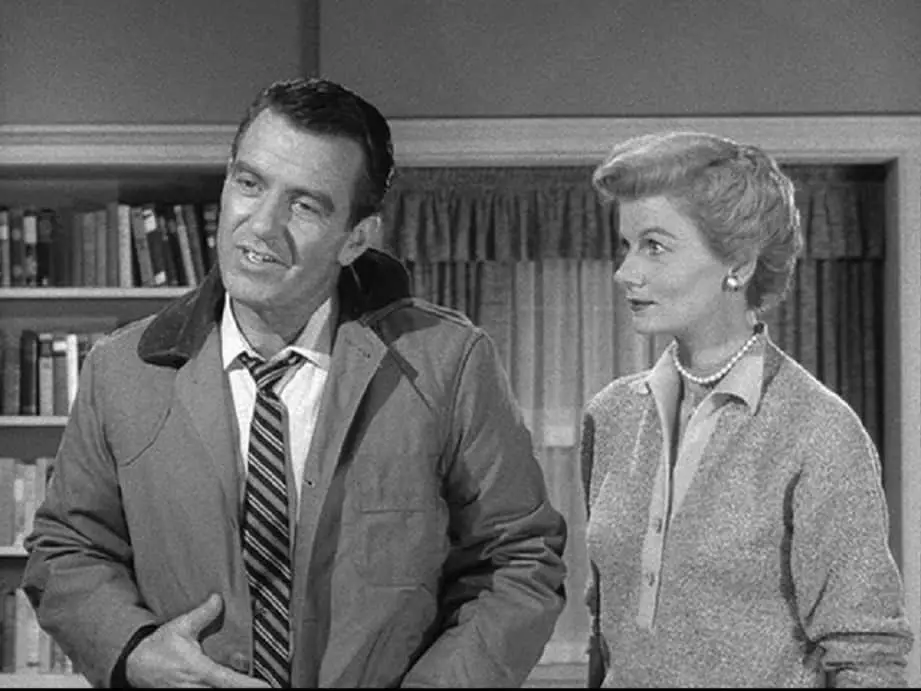
Just because you have money, it doesn’t mean you should spend it
When Ward Cleaver learns that his sons intend to buy a catcher’s mitt and a fielder’s mitt, he’s disappointed. After all, the boys already have perfectly good mitts – though Beaver’s is starting to get worn, and Wally doesn’t own a catcher’s mitt but one for first base. Wally, meanwhile, wants to play catcher, and he thinks he'll look silly with a mitt meant for first base.
“Well, now, look boys… uh, it’s your money," Ward says. "You saved it, and I’m not going to try and tell you what you ought to do with it.”
Still, Ward tries to impart the idea that just because you have a wad of cash, there’s no need to spend it as soon as it’s saved up. He tries to use himself as an example of somebody who could buy new stuff but doesn't.
“I'm going hunting this next Saturday with Mr. Dennison. And I'd like to have a new hunting jacket. My old one's six or seven years old. But I'm not going to go out and buy a new one,” Ward says.
Instead, he thinks the boys should put the money in the bank.
It’s better to give than receive
Well, Wally and the Beaver end up deciding that instead of putting in their hard earned money in the bank, they’ll buy their dad a hunting jacket – and any remaining revenue can go into their savings account. They sneak out of school during lunch and visit an expensive sporting goods store, but the hunting jacket that they want to get for their father costs more than they have. So they go to their bank and take out more money from their savings account, so they can buy it a surprise gift.
Naturally, the parents learn that their kids snuck out of school and took money out of the bank, instead of putting money in. Ward is pretty irked, though he never gets too angry on Leave It to Beaver. In any case, when he discovers what the boys have done, that they bought him an expensive gift with their own money, he naturally feels foolish for doubting his sons and being upset – but he also feels like a million bucks. Wally and Beaver look like they feel pretty good, too.
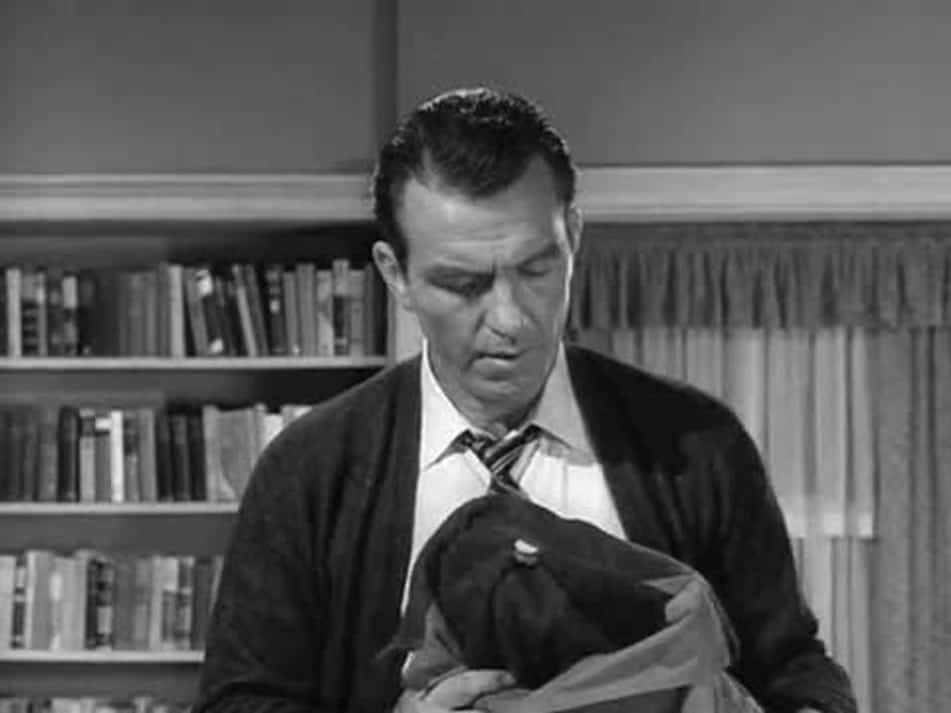
You can raise money quickly, if you're in a jam.
In the episode, “The Broken Window,” Wally and Beaver accidentally break their parents’ car window, which was in the garage. Their parents are out of the house for the day, spending time with their real estate agent, looking at lots, just in case they would want to move somewhere else.
Wally and Beaver don’t want to tell their parents about the broken window – it’s the second window within a week that they’ve destroyed. So they endeavor to raise money to get the window replaced before their parents come home. They don’t succeed, and ultimately will end up paying for the window out of their allowances, but they do come up with $6.35 pretty quickly (unfortunately, they need $16 to get the window fixed… 1950s prices sound so wonderful, but of course, a 1950s salary was much smaller back then).
Wally and Beaver raid their piggy bank, the one they received several episodes earlier, to get some of that $6, but they also recycle bottles with the grocer, and they go to a junk dealer named Fats who will give them $1.18 for the junk in their wagon, if they throw in the wagon.
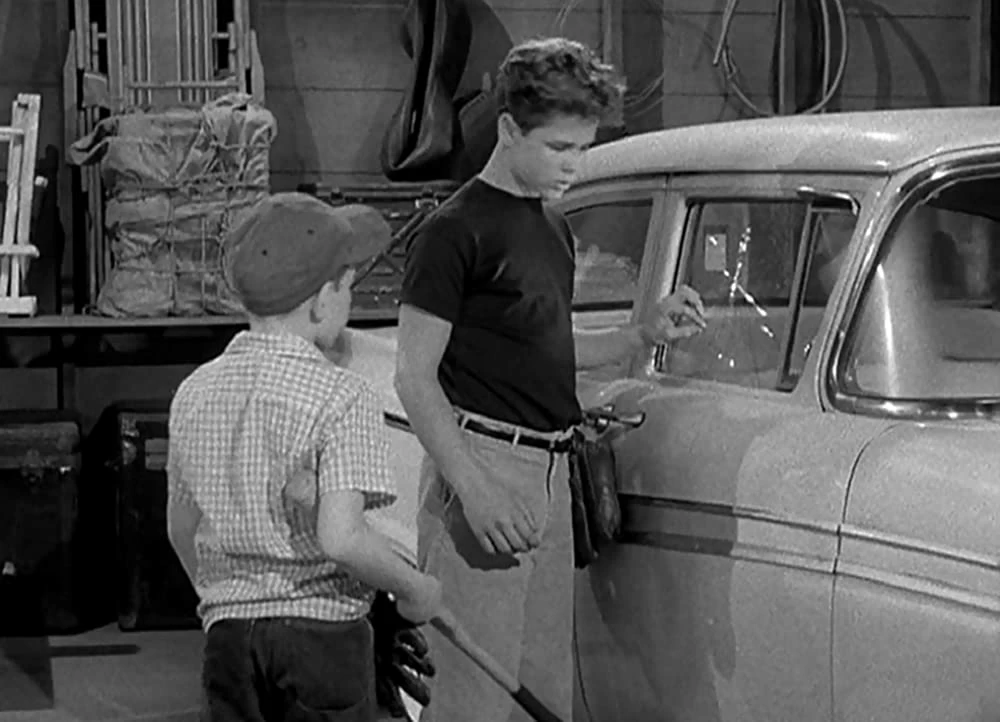
Ask questions before going into debt
While Wally and the Beaver try to raise money to fix their parents' broken window, Ward and June drive in the countryside with their real estate agent, Willis Cornelius, who they call Corny. But Ward and June admit that they’re not really sure why they’re looking at homes, most of them that they can’t afford.
And then Corny offers up this gem: “Well, I always say a person never knows what he can afford until he goes into debt. That's the way to find out your financial capacity.”
He has a point. I feel like that's pretty much how I managed money in my 20s. I discovered how much I could afford, after buying stuff that I would come to realize I couldn't afford.
Corny's advice, of course, is corny, and well stupid, but also accurate for a lot of people. Ward starts to tell his real estate agent what he thinks of the advice, before June gently cuts him off.
Know what a job is worth to you
In the episode “Child Care,” this comes up twice, in subtle ways. Ward learns that Wally and Beaver plan to go to the fire station soon, to help old Pete polish a fire truck.
Good naturedly, Ward says to June, “I try to get them to wash the car, and they'll charge me a dollar. But they'll polish a fire truck for nothing.”
Beaver wisely says: “Dad, you get a fire engine, we'll polish it.”
Near the end of this "Child Care" episode, Wally and Beaver get a job offer. They spent most of the episode babysitting (probably for free) a little girl nicknamed Puddin, who is a real handful (she locks herself in a bathroom, and Wally and Beaver end up having to call old Pete for help). But nonetheless, Puddin’s parents are thrilled to have found good, quality babysitters (which Wally and Beaver are), and they offer them 50 cents an hour to babysit her.
It isn’t clear if the boys would have to split the 50 cents an hour or not, but either way, they decline. Some jobs simply aren't worth the money.
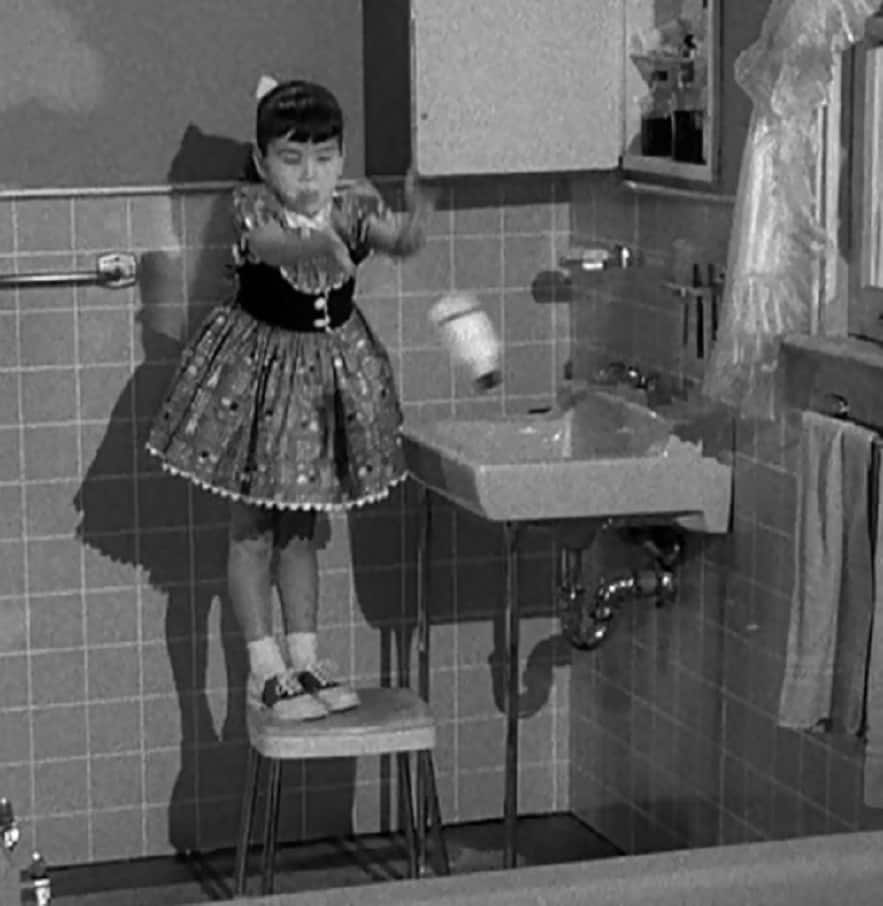
When you teach your kids about money, have some faith that the lessons are sticking
This comes up a lot in Leave It to Beaver. Ward assumes the worst when he learns that his boys left school in the middle of the day and took money out of the bank – though you can hardly blame him in that instance.
But, boy, things really blow up in Ward and June’s faces in “The Paper Route.” They discover some newspapers in the garage on a Saturday, and not being able to find the boys, assume that they are off playing and have forgotten all about the paper route.
Hardly. They are at the newspaper offices, asking some questions and taking their jobs very seriously.
Not being able to text their sons, Ward and June drive around the neighborhood, delivering the newspapers.
Well, they are old newspapers, printed several days earlier. The paper always gives Wally and Beaver extra papers, which they are supposed to later return to their boss.
Anyway, long story made shorter – thanks to their parents well-intended interfering, Wally and Beaver wind up being fired from their jobs. Customers, you see, started complaining that they were receiving outdated newspapers.
Every school should have a "bank day"
One thing that surprised me when watching “The Bank Account” is that Wally and Beaver’s school had something called “bank day,” and so I thought, “Well, either this is some Hollywood invention, or something that used to be done and fell out of favor.”
But, no, after a quick tour through some search engines, I found that schools still do it, a fact that you may well be aware of. But my daughters’ high school never did, alas, nor did my high school in my hometown, at least not that I'm aware of.
Schools having bank days have been a thing since 1885, when it started in New York, copying a trend that began in Europe. Schools partner with banks, where kids are encouraged to open up accounts and deposit money into savings accounts on “bank day.”
If you’re fired, you can quickly become hired
After inadvertently getting the kids fired, Ward manages to get his sons rehired at the paper, but they aren’t interested. They already have jobs lined up at the supermarket, bagging groceries. The night before, they had decided they wouldn’t be discouraged by their firings.
Wally: We can always get a new job.
Beaver: Yeah. I guess that's a lot better than getting new parents.
This was the essential financial and life lesson of Leave It to Beaver
In "The Bank Account," Beaver asks Wally why his father didn’t just buy a new hunting jacket for himself.
But Wally explains, “When you’re an older person, you can't throw away your money on things like this. You've gotta throw it away on food and furniture and junk like that.”
Wally had a point, and in a way, that was the message of the entire series, Leave It to Beaver. Being a grown up is hard work, but being a child is not. Or it shouldn't be.
Children, meanwhile, should relish every moment of childhood, Leave It to Beaver suggests. When you're a kid, you can go outside and play ball and ride your bike -- or at least, you should be able to -- and you can save money in a piggy bank, and if you save a lot, great, but if you don't, it isn't a big deal, because, if you're lucky, your parents are going to be there for you and take good care of you. Truly, it's a wonder that as kids we're all in such a hurry to grow up.
Where to watch Leave It to Beaver (at the time of this writing): Leave It to Beaver (the entire series) and can be found for free on PeacockTV.com.
Articles similar to this Leave It to Beaver one: Hard to say, but maybe you'll enjoy learning about the stock market by reading about Car 54, Where Are You? If nothing else, the TV series was on during the same time as the last several seasons of Leave It to Beaver.

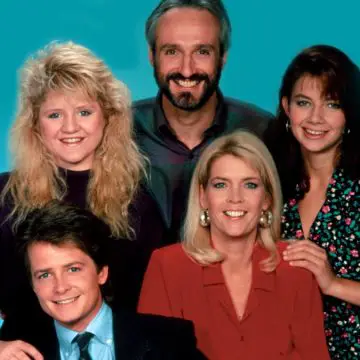
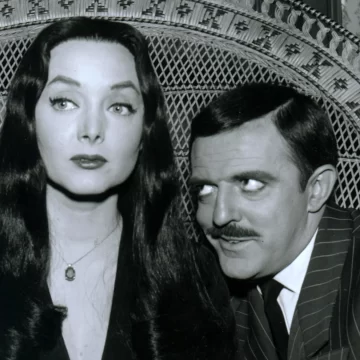

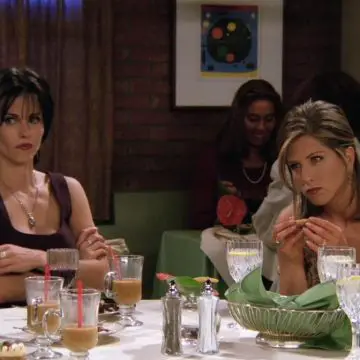
Leave a Reply